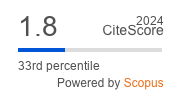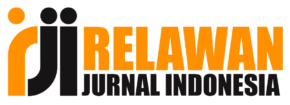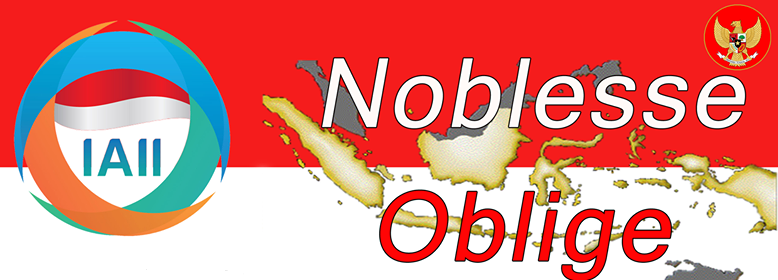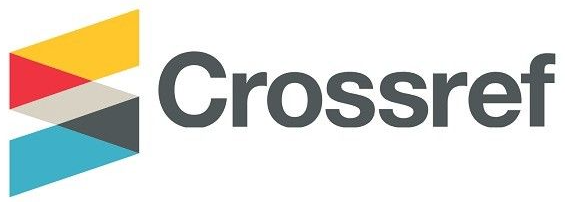Benchmarking Metaheuristic Algorithms Against Optimization Techniques for Transportation Problem in Supply Chain Management
Abstract
The optimization of transportation problems plays a significant role in supply chain management (SCM), where minimizing costs and improving efficiency are mandatory. The transition from manual methods to advanced computational approaches, such as metaheuristic algorithms, enhances decision-making and consolidates operations within SCM. Malaysia's transportation system has been confronting crucial challenges, characterized by congested roadways, limited rail connectivity and inefficient port operations, which interfere with the fluidity of goods and supply chain efficiency. This highlights the critical need for optimization techniques to enhance competitiveness and efficiency in the evolving SCM landscape. The research aims to explore the application of metaheuristic algorithms, with the Modified Distribution (MODI) method as the benchmark while employing the NorthWest Corner Method (NWCM) to obtain an initial feasible solution, to evaluate their performance in optimizing transportation problems. Metaheuristic algorithms, specifically Simulated Annealing (SA) and Particle Swarm Optimization (PSO), are implemented to explore alternative near-optimal solutions and assess the performance in terms of cost accuracy and computational efficiency. The results indicate that SA achieves a deviation of 12.92% in cost accuracy compared to the optimal MODI method, making it suitable for scenarios where precision is critical, whereas PSO which is 296.92 seconds faster, is ideal for time-sensitive applications. Finally, this study encourages future studies to explore additional algorithms, external factors and broader applications for enhanced real-world relevance and scalability to accentuate the potential of metaheuristic algorithms.
Downloads
References
J. Szkutnik-Rogoż, J. Ziółkowski, J. Małachowski, and M. Oszczypała, “Mathematical Programming and Solution Approaches for Transportation Optimisation in Supply Network,” Energies, vol. 14, no. 21. 2021. doi: https://doi.org/10.3390/en14217010.
S. Chopra and P. Meindl, Supply Chain Management: Global Edition, 7th ed. Pearson Education Limited, 2016. [Online]. Available: https://books.google.com/books/about/Supply_Chain_Management.html?id=l6oItAEACAAJ.R
D. B. M. M. Fontes, S. M. Homayouni, and J. F. Gonçalves, “A hybrid particle swarm optimization and simulated annealing algorithm for the job shop scheduling problem with transport resources,” Eur. J. Oper. Res., vol. 306, no. 3, pp. 1140–1157, 2023, doi: 10.1016/j.ejor.2022.09.006.
Z. Liang, M. Liu, P. Zhong, C. Zhang, and X. Wang, “Hybrid Algorithm Based on Genetic Simulated Annealing Algorithm for Complex Multiproduct Scheduling Problem with Zero-Wait Constraint,” Math. Probl. Eng., vol. 2021, no. 1, p. 9951995, Jan. 2021, doi: https://doi.org/10.1155/2021/9951995.
S. Zhan, J. Lin, Z. Zhang, and Y. Zhong, “List-Based Simulated Annealing Algorithm for Traveling Salesman Problem,” Comput. Intell. Neurosci., vol. 2016, no. 1, p. 1712630, Jan. 2016, doi: https://doi.org/10.1155/2016/1712630.
Z. Wang and Y. Wu, “An Ant Colony Optimization-Simulated Annealing Algorithm for Solving a Multiload AGVs Workshop Scheduling Problem with Limited Buffer Capacity,” Processes, vol. 11, no. 3. p. 861, 2023. doi: 10.3390/pr11030861.
C. Aroniadi and G. N. Beligiannis, “Applying Particle Swarm Optimization Variations to Solve the Transportation Problem Effectively,” Algorithms, vol. 16, no. 8. p. 372, 2023. doi: 10.3390/a16080372.
K. Fikri, “Logistics Industry: Navigating the Local Supply Chain in Malaysia,” Ajobthing. Accessed: Aug. 15, 2024. [Online]. Available: https://www.ajobthing.com/resources/recruiter-advice/logistics-industry-navigating-the-local-supply-chain-in-malaysia
A.-H. Jo, S.-H. Cho, B.-K. Kim, K. Kim, and A. Gaduena, “Measuring Port Activities and Lockdown Impact Using Automatic Identification System Data,” 2024. doi: http://dx.doi.org/10.22617/WPS240486-2.
RETI, “Challenges Faced by Logistics and Supply Chains in Malaysia,” Ranaco Education & Training Institute (RETI). Accessed: Jun. 13, 2025. [Online]. Available: https://reti.edu.my/challenges-faced-by-logistics-and-supply-chains-in-malaysia-2/
A. Sied, “A Study on Essential of Effective Transportation System for Supply Chain Efficiency, Cost Reduction and Enhancing Customer Satisfaction,” Glob. Sci. J., vol. 12, no. 5, pp. 8–12, May 2024, doi: 10.5281/zenodo.11124157.
T. Abdullahi Yusuf, H. Abba, and A. Madugu, “Extension of the North West Conner Rule (ENWCR) Method to Solve Transportation Problems,” Int. J. Trend Res. Dev., vol. 8, no. 6, pp. 142–144, Nov. 2021, [Online]. Available: https://www.researchgate.net/publication/356144796_Extension_of_the_North_West_Conner_Rule_ENWCR_Method_to_Solve_Transportation_Problems
S. Senthilnathan, “Transportation Technique: Part 3 - Process 2: Optimality testing and solution,” 2017. [Online]. Available: https://papers.ssrn.com/sol3/papers.cfm?abstract_id=3000658
F. Ndayiragije, “Transportation Problem South-East Corner Method and a Comparative Study on the North-West Corner, South-East Corner, North-East Corner and South-West Corner Methods,” Int. J. Sci. Eng. Investig., vol. 6, pp. 37–39, May 2017.
O. Jude, O. Ben Ifeanyichukwu, I. A. Ihuoma, and E. P. Akpos, “A New and Efficient Proposed Approach to Find Initial Basic Feasible Solution of a Transportation Problem,” Am. J. Appl. Math. Stat., vol. 5, no. 2, pp. 54–61, Jul. 2017, doi: 10.12691/ajams-5-2-3.
R. Askerbeyli, “Study of transportation problem of iron and steel industry in Turkey based on linear programming, VAM and MODI methods,” Commun. Fac. Sci. Univ. Ankara Ser. A2-A3 Phys. Sci. Eng., vol. 62, no. 1, pp. 79–99, 2020, doi: 10.33769/aupse.740416.
G. Singh and A. Singh, “Extension of particle swarm optimization algorithm for solving transportation problem in fuzzy environment,” Appl. Soft Comput., vol. 110, p. 107619, 2021, doi: https://doi.org/10.1016/j.asoc.2021.107619.
J. Brownlee, Simulated Annealing Afternoon: A Practical Guide for Software Developers. AlgorithmAfternoon.com, 2024. [Online]. Available: https://freecomputerbooks.com/Simulated-Annealing-Afternoon.html
Z. Li, W. Fei, E. Zhou, Y. Gajpal, and X. Chen, “The Impact of Lead Time Uncertainty on Supply Chain Performance Considering Carbon Cost,” Sustainability, vol. 11, no. 22. p. 6457, 2019. doi: 10.3390/su11226457.
D. Delahaye, S. Chaimatanan, and M. Mongeau, “Simulated Annealing: From Basics to Applications BT - Handbook of Metaheuristics,” in Handbook of Metaheuristics, M. Gendreau and J.-Y. Potvin, Eds., Cham: Springer International Publishing, 2019, pp. 1–35. doi: 10.1007/978-3-319-91086-4_1.
M. Savelsbergh and T. Van Woensel, “50th Anniversary Invited Article—City Logistics: Challenges and Opportunities,” Transp. Sci., vol. 50, no. 2, pp. 579–590, Mar. 2016, doi: 10.1287/trsc.2016.0675.
S. Ebbesen, P. Kiwitz, and L. Guzzella, “A generic particle swarm optimization Matlab function,” in 2012 American Control Conference (ACC), 2012, pp. 1519–1524. doi: 10.1109/ACC.2012.6314697.
J. Schulte and V. Nissen, “Sensitivity analysis of combinatorial optimization problems using evolutionary bilevel optimization and data mining,” Ann. Math. Artif. Intell., vol. 91, no. 2, pp. 309–328, 2023, doi: 10.1007/s10472-022-09827-w.
J. Lu and Z. Zhang, “An Improved Simulated Annealing Particle Swarm Optimization Algorithm for Path Planning of Mobile Robots Using Mutation Particles,” Wirel. Commun. Mob. Comput., vol. 2021, no. 1, p. 2374712, Jan. 2021, doi: https://doi.org/10.1155/2021/2374712.
S. Lin, A. Liu, J. Wang, and X. Kong, “An intelligence-based hybrid PSO-SA for mobile robot path planning in warehouse,” J. Comput. Sci., vol. 67, p. 101938, 2023, doi: https://doi.org/10.1016/j.jocs.2022.101938.
H.-L. Shieh, C.-C. Kuo, and C.-M. Chiang, “Modified particle swarm optimization algorithm with simulated annealing behavior and its numerical verification,” Appl. Math. Comput., vol. 218, no. 8, pp. 4365–4383, 2011, doi: https://doi.org/10.1016/j.amc.2011.10.012.
Copyright (c) 2025 Jurnal RESTI (Rekayasa Sistem dan Teknologi Informasi)

This work is licensed under a Creative Commons Attribution 4.0 International License.
Copyright in each article belongs to the author
- The author acknowledges that the RESTI Journal (System Engineering and Information Technology) is the first publisher to publish with a license Creative Commons Attribution 4.0 International License.
- Authors can enter writing separately, arrange the non-exclusive distribution of manuscripts that have been published in this journal into other versions (eg sent to the author's institutional repository, publication in a book, etc.), by acknowledging that the manuscript has been published for the first time in the RESTI (Rekayasa Sistem dan Teknologi Informasi) journal ;







